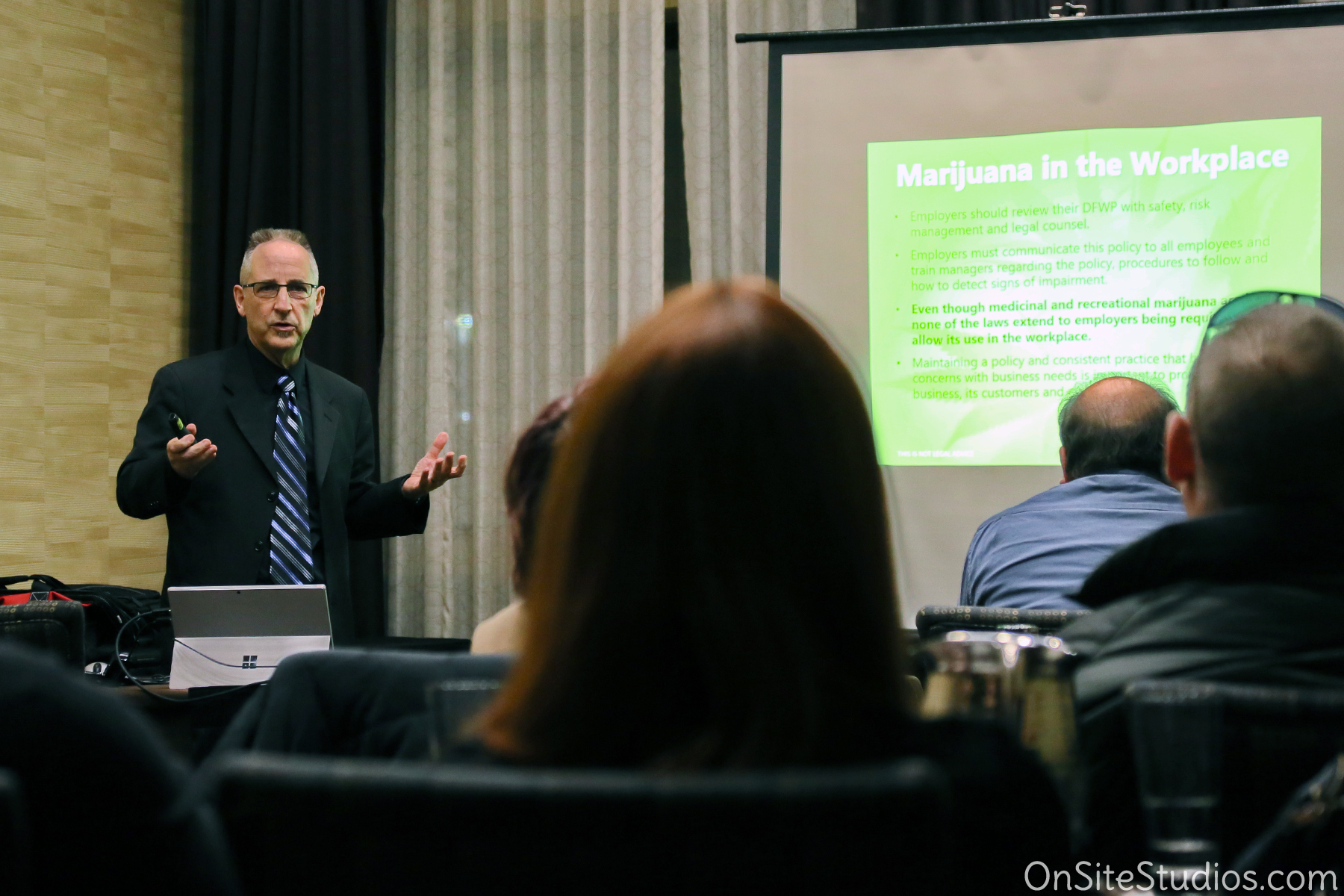Posted by Cheryl Savit, KitchenVisions and EM NARI PR Committee
Now that Massachusetts has legalized marijuana use, what are the implications for the workplace, especially the building industry and trades? Kevin Lister of Paradigm Strategies spoke to EM NARI members before the December 4th dinner meeting.
The main takeaway from Lister’s talk is that companies should have a drug policy in place and communicate it to employees. Lister recommends that a written drug-free workplace policy (DFWP) be included in your company manual.
He further recommends that “the focus be on prohibiting employees from being impaired due to weed use while working, instead of on the use of weed itself.” While marijuana can be forbidden in the workplace, medical and recreational use outside of the workplace may be an issue.
No current law says employers are required to allow use in the workplace. Working with employees who have medical issues warrants particular care. Employees cannot be fired for using legal marijuana (or alcohol) on their own time.

Some signs of marijuana use or impairment:
- Odor of marijuana may be pervasive
- Speech slowed or changed
- Loss of coordination
- Blood shot eyes
- Out of character behavior and/or paranoia
Familiarizing yourself with all of the laws and guidelines surrounding the legality of marijuana is important, as are recognizing the signs of drug abuse. Some common signs to be alert to:
- Decline in performance
- Absenteeism (especially Mondays)
- Tardiness
- Interpersonal difficulties (getting along with co-workers)
- Behavior inconsistent with past behavior
Especially of concern is when an employee is driving a company vehicle. If an employee has a motor vehicle accident, consider having that employee drug tested. Do not rely on the employee to get themselves tested and Lister recommends not letting that employee drive himself or herself.
Also be aware that current law says that drivers can refuse a test for weed use without loss of license and that saliva tests are not currently admissible in court. However, changes to the law are under consideration, especially consequences for test refusal.
When an employee tests positive
If your company does not have a drug testing policy, investigate all of the procedures and consequences of enacting a testing program. Some of the issues include:
- Random testing timing
- Deciding what drugs to test for (opiates, marijuana, or other)
- Testing facilities
- Consequences of testing positively for substances
Understand that marijuana can be detected in the body for more than 24 hours or more. That can complicate a random testing program. If your company does enact drug testing, be aware that it must be done uniformly for all employees. Most HR attorneys will recommend consistent and fair testing.
Some companies – as well as universities and other institutions – have developed a “three strikes” policy. This means that after the third documented infraction, the employee is subject to dismissal.
The bottom line is that each company needs to define its drug policy and then stick to it.

